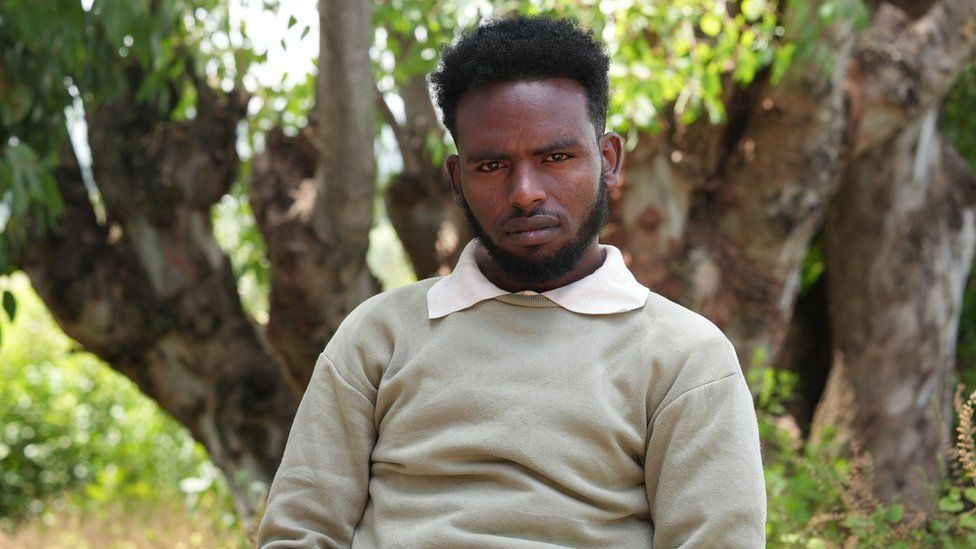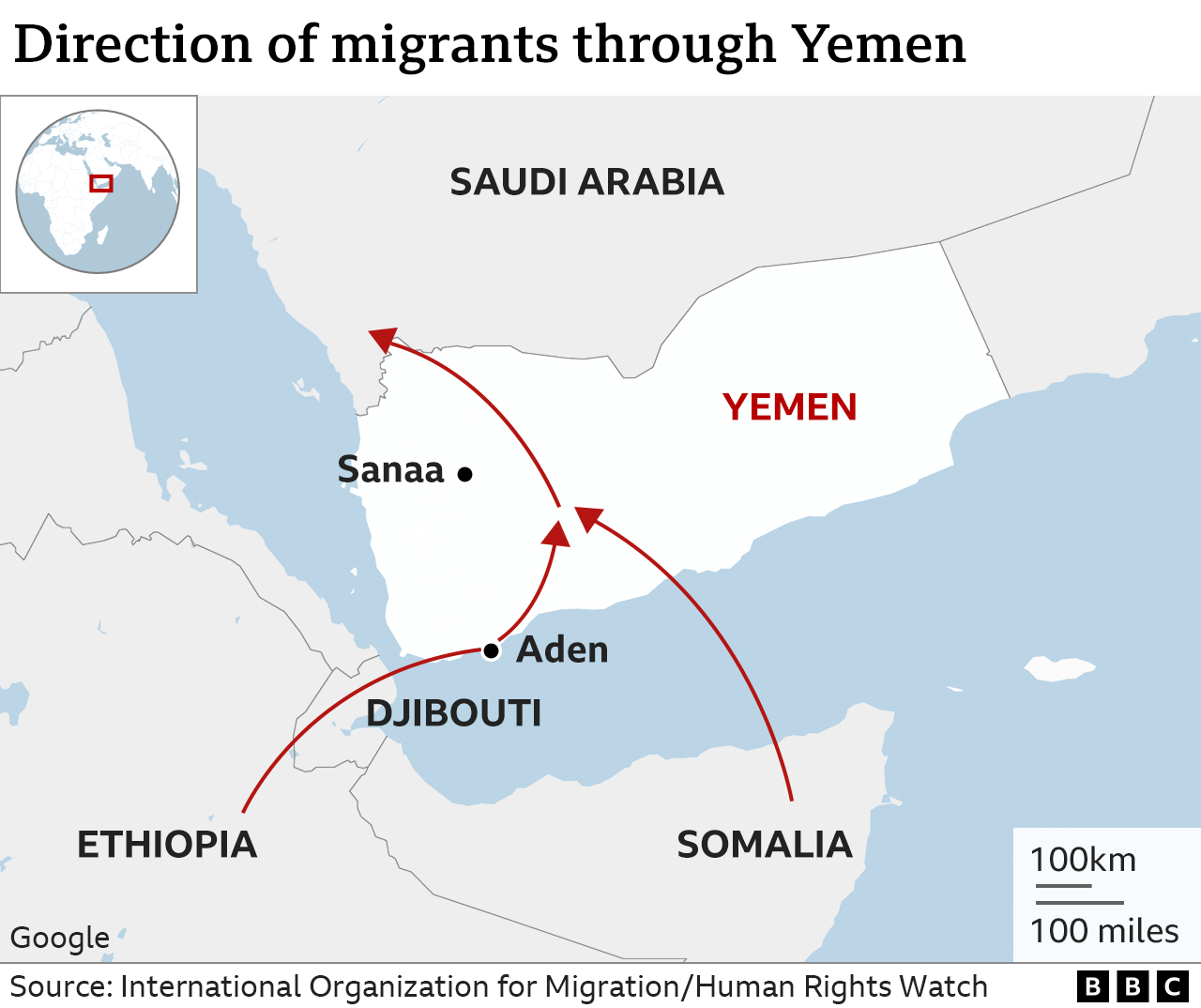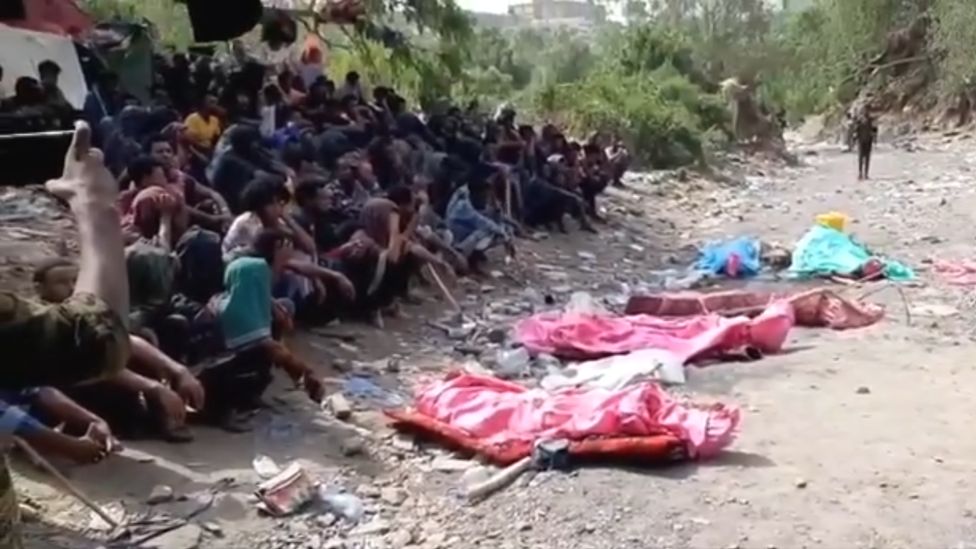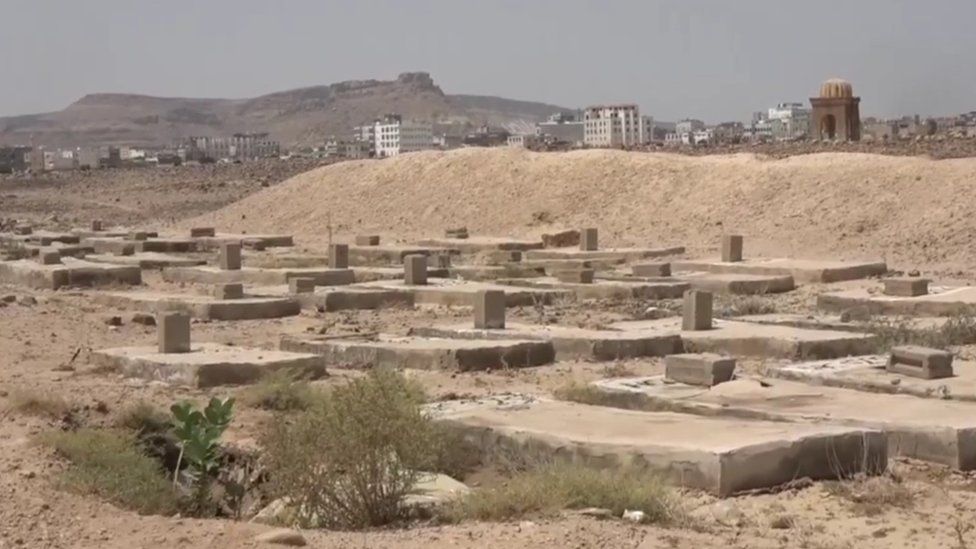A new report by Human Rights Watch accuses Saudi border guards of engaging in a large-scale killing of migrants along the Yemeni border. According to the report, numerous individuals, a significant portion of them being Ethiopians who traverse war-ravaged Yemen en route to Saudi Arabia, have been fatally shot.
BBC interviews with migrants reveal horrific accounts of limbs severed due to gunfire and the sight of bodies abandoned along the trails. Despite these allegations, Saudi Arabia has previously dismissed claims of organized killings.
The Human Rights Watch’s publication titled “They Fired On Us Like Rain” presents harrowing firsthand testimonies from migrants. These individuals recount instances of being fired upon, and in some cases, subjected to explosive weaponry by Saudi police and soldiers at Yemen’s rough northern border adjoining Saudi Arabia.
Migrants interviewed independently by the BBC recount distressing nighttime journeys where substantial clusters of Ethiopians, including women and children, faced gunfire while attempting to cross the border in pursuit of employment opportunities in the oil-abundant kingdom.
“The shooting went on and on,” 21-year-old Mustafa Soufia Mohammed told the BBC.
He said some in his group of 45 migrants were killed when they came under fire as they tried to sneak across the border in July last year.
“I didn’t even notice I was shot,” he said, “but when I tried to get up and walk, part of my leg was not with me.”

It was a brutal, chaotic end to a three-month journey fraught with danger, starvation and violence at the hands of Yemeni and Ethiopian smugglers.
A video filmed hours later shows his left foot almost completely severed. Mustafa’s leg was amputated below the knee and now, back with his parents in Ethiopia, he walks with crutches and an ill-fitting prosthetic limb.
“I went to Saudi Arabia because I wanted to improve my family’s life,” the father-of-two said, “but what I hoped for didn’t materialise. Now my parents do everything for me.”
Another Ethiopian migrant, who we are calling Ibsaa to protect his identity, said he was shot at the border by men wearing Saudi military uniforms.
“They beat us, killed some and took those who survived to the hospital. The bodies of those killed were left scattered on the ground,” he told the BBC.
“I was shot between my thighs near my groin, and my legs are paralyzed now. I can’t even walk. I thought I would die.”
‘Killing fields’
Some survivors show signs of deep trauma.
In the Yemeni capital, Zahra can barely bring herself to speak about what happened.
She says she is 18, but looks younger. We are not using her real name to protect her identity.
Her journey, which had already cost around $2,500 (£1,950) in ransoms and bribes, ended in a hail of bullets at the border.
One bullet took all the fingers of one hand. Asked about her injury, she looks away and cannot answer.

According to the UN’s International Organization for Migration, more than 200,000 people a year attempt a perilous journey, crossing by sea from the Horn of Africa to Yemen and then travelling on to Saudi Arabia.
Human rights organisations say many experience imprisonment and beatings along the way.
The sea crossing is dangerous enough. More than 24 migrants were reported missing last week after a shipwreck off the coast of Djibouti.
In Yemen, the main migrant routes are littered with the graves of people who have died along the way.
Dozens of migrants were killed two years ago when fire tore through a detention centre in the capital, Sanaa, run by the country’s Houthi rebels who control most of northern Yemen.
But the abuses outlined in the latest HRW report are different in scale and nature.
“What we documented are essentially mass killings,” the report’s lead author, Nadia Hardman, told the BBC.
“People described sites that sound like killing fields – bodies strewn all over the hillside,” she said.
The report, which covers the period from March 2022 to June this year, details 28 separate incidents involving explosive weapons and 14 of shootings at close range.
“I have seen hundreds of graphic images and videos sent to me by survivors. They depict pretty terrifying injuries and blast wounds.”

The remoteness of the border crossings and the difficulty of tracking down survivors make it impossible to know precisely how many people have been killed, say the authors.
“We say a minimum of 655, but it’s likely to be thousands,” Hardman said. “We have factually demonstrated that the abuses are widespread and systematic and may amount to a crime against humanity,” she said.
Reports of widespread killings perpetrated by Saudi security forces along the northern border first surfaced last October in a letter by UN experts to the government in Riyadh.
They highlighted “what appears to be a systematic pattern of large-scale, indiscriminate cross-border killings, using artillery shelling and small arms fired by Saudi security forces against migrants.”
Despite the horrific nature of the allegations, the letter went largely unreported.
Saudi denials
The Saudi government said it took the allegations seriously but strongly rejected the UN’s characterisation that the killings were systematic or large-scale.
“Based on the limited information provided,” the government replied, “authorities within the Kingdom have discovered no information or evidence to confirm or substantiate the allegations.”
But last month, the Mixed Migration Centre, a global research network, published further allegations of killings along the border, based on its own interviews with survivors.
Its report contains graphic descriptions of rotting corpses scattered throughout the border area, captured migrants being asked by Saudi border guards which leg they want to be shot through, and machine guns and mortars being used to attack large groups of terrified people.
The report from Human Rights Watch is the most detailed yet, with multiple eyewitness reports and satellite imagery of the crossing points where many of the killings are said to have taken place, as well as makeshift burial sites.

The report also identifies a detention centre at Monabbih, just inside Yemen, where migrants are held before being escorted to the border by armed smugglers.
According to one migrant interviewed by HRW, Yemen’s Houthi rebels are in charge of security at Monabbih and work alongside the smugglers.
A satellite photo shows bright orange tents packed closely together inside a fenced-off compound.
Fresh burials
While the HRW report covers events up to June this year, the BBC has uncovered evidence that the killings are continuing.
In the northern city of Saada, footage seen by the BBC shows migrants injured at the border arriving in a hospital as late as Friday. In a nearby cemetery, burials were taking place.
The BBC has approached the Saudi government for comment about the allegations made by UN rapporteurs, the Mixed Migration Centre and Human Rights Watch, but has not received a response.


